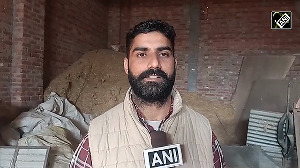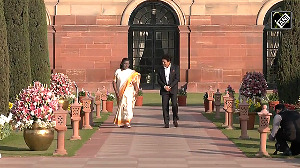Amidst increasing report of prosecution of religious minorities and the violation of their human rights, an eminent American think tank has demanded that Pakistan be put on the genocide watch list.
"In recent years, anyone who is not a Muslim in Pakistani society -- or groups of Muslims who are not considered to be Muslim socially and religiously or under Pakistan's law -- have been facing a sustained campaign of hate and religious persecution by Islamic groups and individuals, including government officials, legislators, judges, lawyers, police officers and clerics, who interpret the law on their own terms and enforce it with the objective of making Pakistan a purer-than-ever Islamic nation," says Tufail Ahmad of the Washington-based Middle East Media Research Institute.
The persecution is manifested in the imprisonment of Christians and Ahmadi Muslims on charges of blasphemy; abduction of Hindu and Christian girls and their forced conversion to Islam; demolition and desecration of houses of worship; denial of food relief to non-Muslim flood victims by both government officials and wealthy philanthropists; denigration of and attacks on Shia Muslims and the deliberate and systematic killing of members of all these communities, MERI said in a report released on Tuesday.
Ahmad writes that discrimination against Christians and Hindus is anchored in the Pakistani constitution, which bars them from holding senior posts such as President.
In addition, a law from 1974 declares the Ahmadis non-Muslim, and, along with some later laws, forbids them to use Muslim names and symbols, though they identify themselves as Muslims and follow the teachings of the Koran.
The pressure on the religious minorities has led many to convert to Islam in order to survive, the paper says.
Though not all Pakistanis are involved in the hate campaign and discrimination against religious minorities, and many would probably oppose these phenomena, the social climate is such that it is difficult for a large majority to speak out, observes the paper.






 © 2025
© 2025